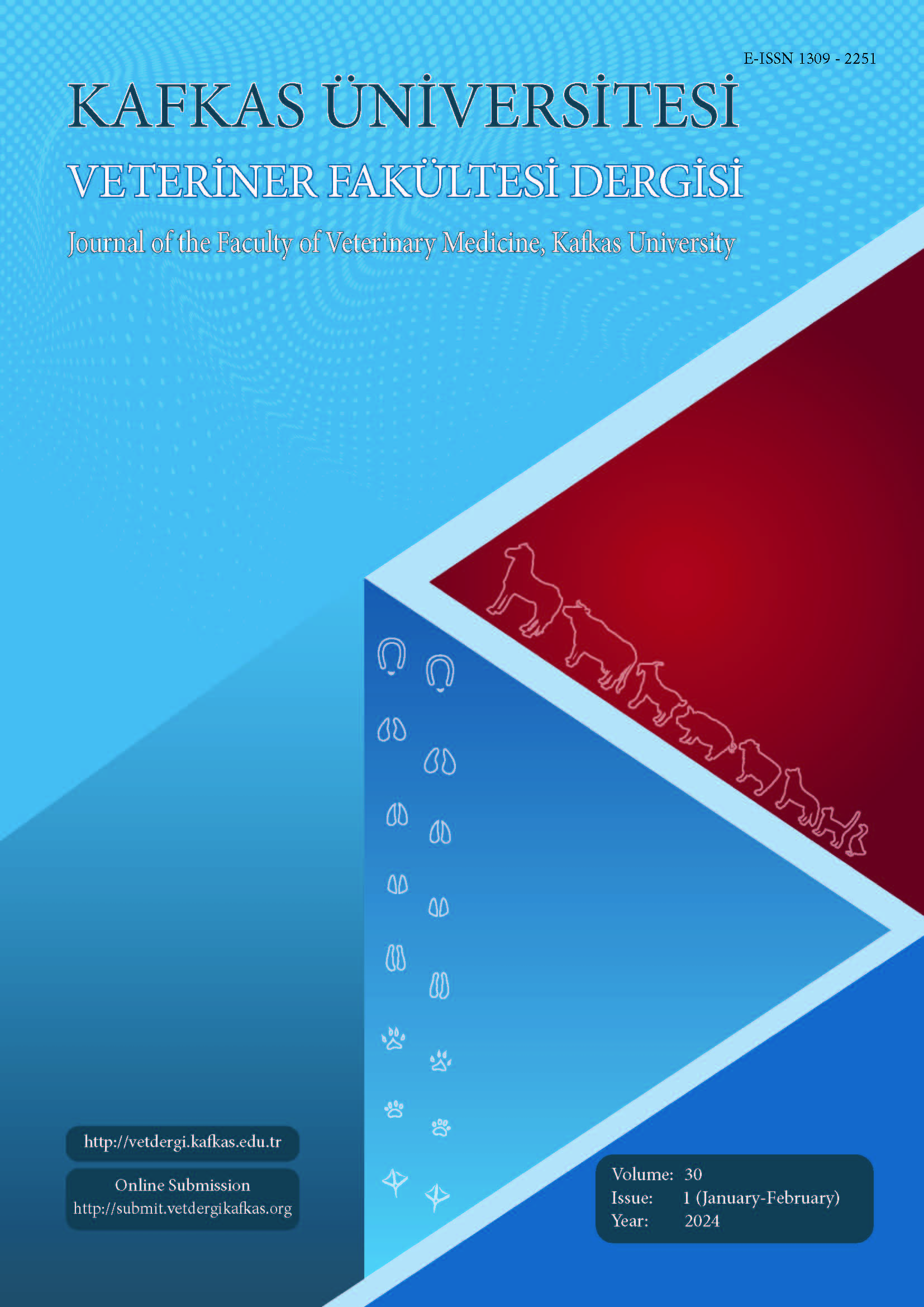
This journal is licensed under a Creative Commons Attribution-NonCommercial 4.0 International License
Kafkas Üniversitesi Veteriner Fakültesi Dergisi
2024 , Vol 30 , Issue 1
Evaluation of Colostral Passive Immune Transfer Success in Turkish Kangal Shepherd Dogs
1Kırıkkale University, Faculty of Veterinary Medicine, Department of Internal Medicine, TR-71450 Kırıkkale - TÜRKİYE2Kırıkkale University, Faculty of Veterinary Medicine, Department of Biochemistry, TR-71450 Kırıkkale - TÜRKİYE DOI : 10.9775/kvfd.2023.30363 The aim of this study was to investigate the passive immune transfer process and its effects in Turkish Kangal shepherd dogs. The material of the study consisted of 15 dams and their 138 offspring in the region of Central Anatolia, Türkiye. Blood samples were collected from the surviving puppies at 48±4 h postpartum and IgG levels were measured using the ELISA method. Before the blood samples were collected, 34 of the puppies (26.64%) died, 56 of the 104 puppies (40.58%) whose blood samples were collected and IgG analyses were done died prior to weaning, and 48 (34.78%) survived until weaning. All of the analyzed blood samples had IgG levels above 230 mg/dL and there was no passive transfer failure. The average blood IgG level of the puppies was 664.86 mg/dL. The effects of litter size and birth season on passive transfer success were statistically significant (P<0.05), while maternal age and the sex of the puppy were not significant (P>0.05). There was no correlation between the average blood IgG levels of the puppies and group mortality rates (r = -0.44). In conclusion, while the rate of passive transfer success for Turkish Kangal shepherd dogs was found to be high compared to other breeds, the high rate of mortality among the puppies suggested that dams and their litters should be cared for more carefully in the neonatal period. Keywords : Canine neonatal period, Colostrum, ELISA, Ig G, Passive immune transfer, Puppy mortality, Turkish Kangal shepherd dogs










